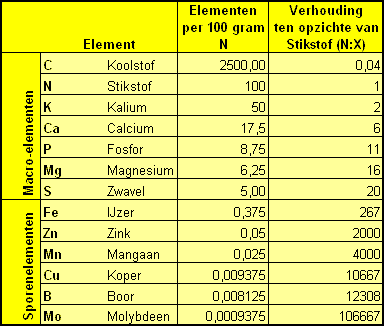Calcium is important for our bone structure, but also for the supply of energy for the body's cells and the nerves signal transmission.
You can find it in dark leafy vegetables, especially cruciferous, such as kale, cabbage, broccoli, mustard, watercress, Brussels sprouts, parsnips and turnips.
 Iodine is essential for the production of hormones in the thyroid gland. This is important for the cell's metabolism and the development of the central nervous system.
Iodine is essential for the production of hormones in the thyroid gland. This is important for the cell's metabolism and the development of the central nervous system.
Seaweed and kelp are the best source of iodine. You can also find it in beets, oats, celery, lettuce, grapes, mushrooms, oranges, carrots, pears, tomatoes, pineapple, peas, nettles, lima beans, sesame seeds, soybeans, pumpkins, beets and turnips.
Sources of selenium include Brazil nuts, broccoli, cabbage, celery, radishes, brewer's yeast and whole grains.
Iron is necessary for the production of hemoglobin, the protein that binds, carries and transports oxygen in the blood. It is found in green leafy vegetables (especially parsley, watercress, dandelion, spinach, kale, broccoli), legumes, seeds, molasses, seaweed, figs, dates, dried apricots, raisins, nuts and whole grains.
Zinc plays an important role in the formation and repair of body tissues. You find it in beans, peas, (beer) yeast, nuts, carrots, whole grains, buckwheat, millet, wheat germ, sunflower seeds, green leafy vegetables, sea vegetables.
